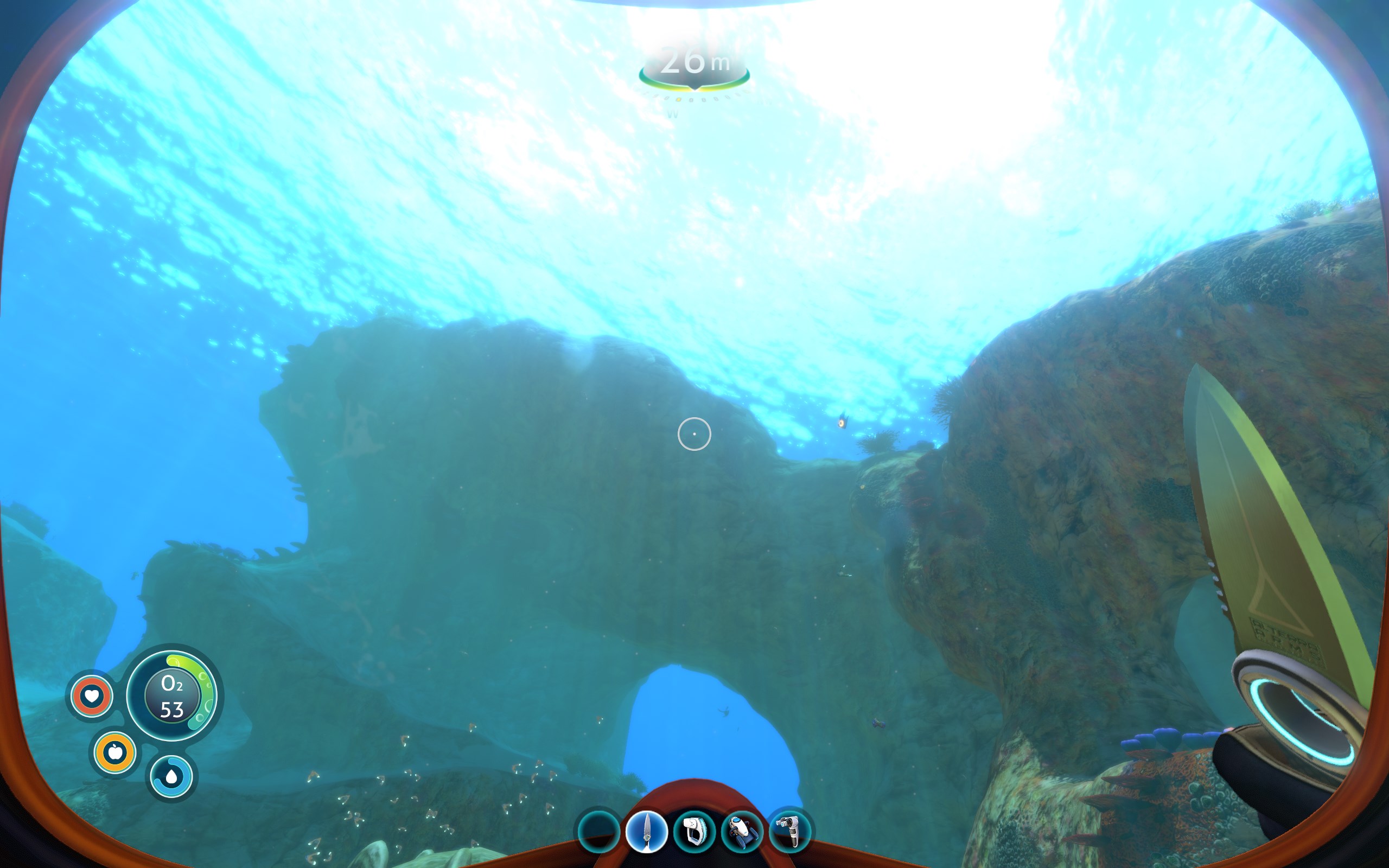
Welp, I'm doing the thing. I don't typically go out of my way to do a Top Whatever list like this, but I guess I just got caught up in the GOTY hype. This past year wasn't quite the deluge of big-budget showstoppers that 2017 was, but there were a ton of smaller titles that were just as memorable. It's never easy to lock down these lists, but I'm pretty happy with what I've chosen here and I'm excited to share.
Before we get to it, a quick disclaimer. It's been a busy year, and you can bet that I didn't get to play everything that might have been a contender for a spot on this list. Here are some games that, had I played them, may have stolen a spot in my Top 10: Ashen, Monster Hunter: World, Mutant Year Zero, Deltarune, Octopath Traveller, Heaven Will Be Mine, Hitman 2, Assassin's Creed Odyssey
Honorable Mentions
Death's Gambit
An interesting 2D souls-like with some surprisingly cool boss fights. Its art and music are inconsistent, but do have moments of impressive spectacle, and I found myself unexpectedly fascinated by this game and its world. It still needs a lot of polish and tuning, but could become truly great as the devs continue to incorporate feedback.
Return of the Obra Dinn
Lucas Pope's 1-bit nautical detective game constructs its own niche in the first-person adventure game space. It doesn't just systematize deduction via clues and highlighted objects, but actually asks players to make real deductions. I found that there were places where its expectations of the player fell apart (and thus, it doesn't make my personal list), but it's excellent and unique nonetheless.
Hollow Knight
If you know me at all, you'll know how much I loved Hollow Knight when I played it in 2017. To all those who got around to it this year: I told you so!
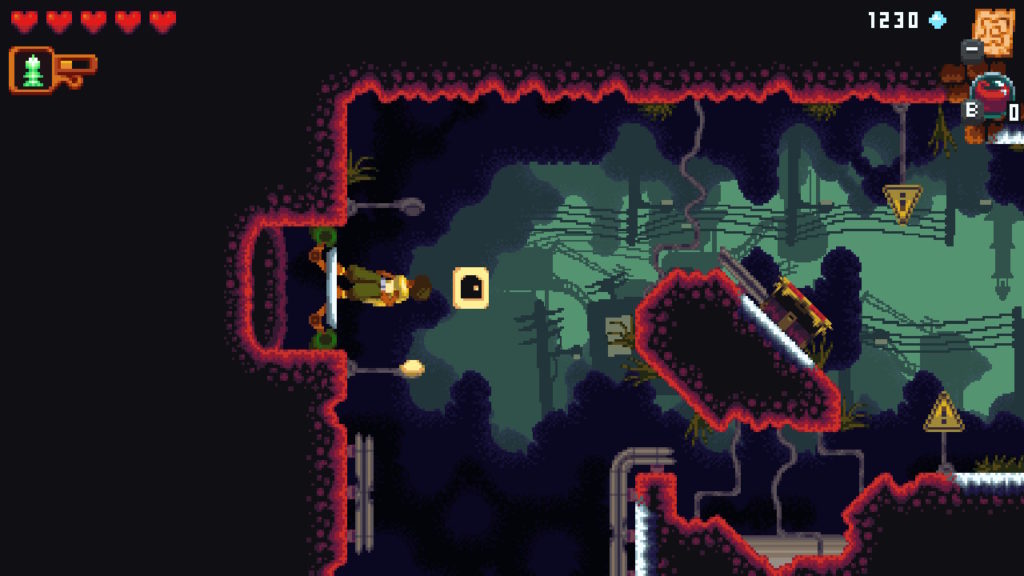
10. Dandara
This game clawed its way onto my list at the last minute, but I can't stress enough how much it deserves to be here. Dandara is a beautiful, surreal Metroidvania (with a dash of Dark Souls inspiration) by Brazilian studio Long Hat House. It's one of the most mechanically unique games on this list: rather than walking or running like in typical sidescrollers, Dandara leaps from point to point around the walls. Once you get the hang of it, the controls are tight and intuitive and the combat is intense and satisfying. Because the movement and the world are so unusual, navigating through the map and solving spatial puzzles is a uniquely enjoyable experience, and it feels distinct from navigating other modern Metroidvanias.
Dandara is sparse on story but heavy on atmosphere, and it's paced really nicely. Difficulty ramps up quickly but smoothly, and the game feels like just the right length. Sure, there are a couple of enemy encounters that feel cheap, and occasionally some brutal distances between checkpoints. But its atmosphere and its outright originality make it absolutely worth the journey. I've never played anything quite like Dandara.
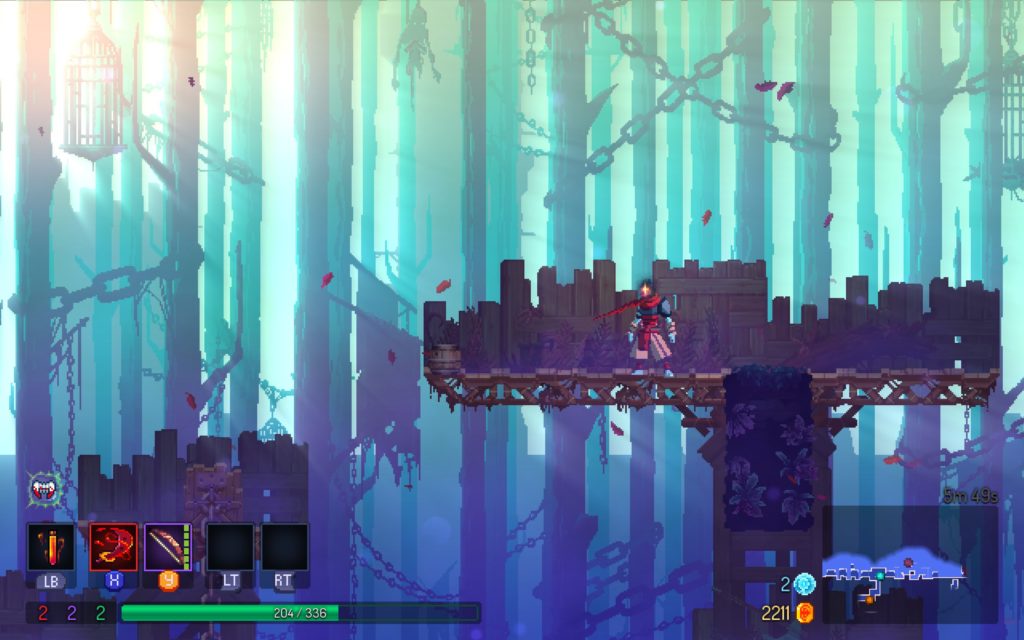
9. Dead Cells
Dead Cells is a game that, in so many ways, feels good to play. It's fast-paced, difficult, and unrelenting, but it's also tightly controlled and expressive. Building up your character in different ways, experimenting with different weapons with each new run, and cautiously exploring through each new area make the experience surprisingly evergreen. Despite the relatively simple level and enemy design, there's so much diversity to the weapons and skills and so many different ways to maximize your loot or progress.
Progression across runs is smartly designed and provides a long runway with which to learn and improve at the game, while also expanding the pool of randomized gear and providing some permanent upgrades. There are some strategies that I wish were more viable, or at least accessible, but all in all the experimentation is consistently rewarding. Dead Cells is a game I will keep coming back to.
Note: I wrote more about Dead Cells earlier this year!
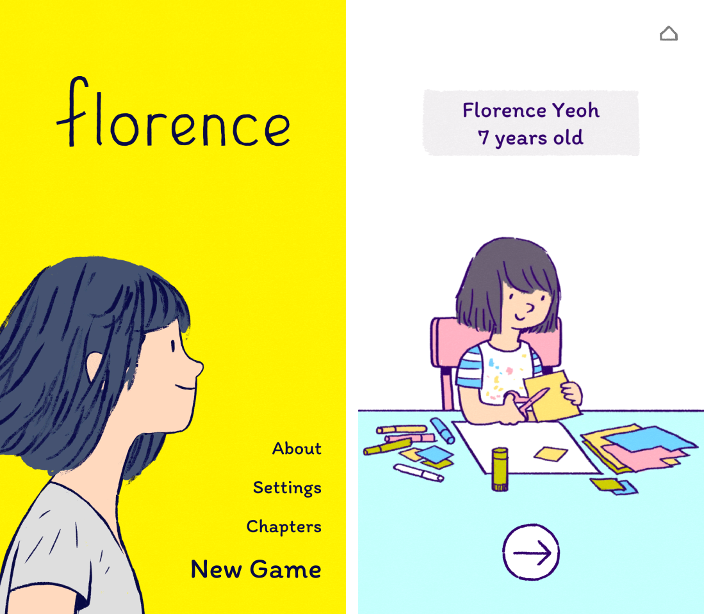
8. Florence
Florence is definitely the odd one out on this list. It's a short narrative game available on mobile devices that explores the story of a romantic relationship. While its story and art are charming, its most interesting facet is how it uses simple touch screen mechanics to build metaphors for the activities in Florence's life. There are simple bits of interactivity, like moving a toothbrush back and forth, but there are also some more clever ones. like the interactive metaphor it uses for dialogue.
Florence is cheap, accessible, and short. It's a reminder that games don't always have to be deep, engrossing experiences for dedicated folks, but can be small reflective ones. I could tell just about anyone who can use a smartphone to play Florence, and they'd probably get something out of it. I realize that there are entire indie scenes for small narrative games, but it's nice to see something like Florence having gotten the attention it did. It's a nice distillation of the how interaction can reinforce the emotions of a narrative.
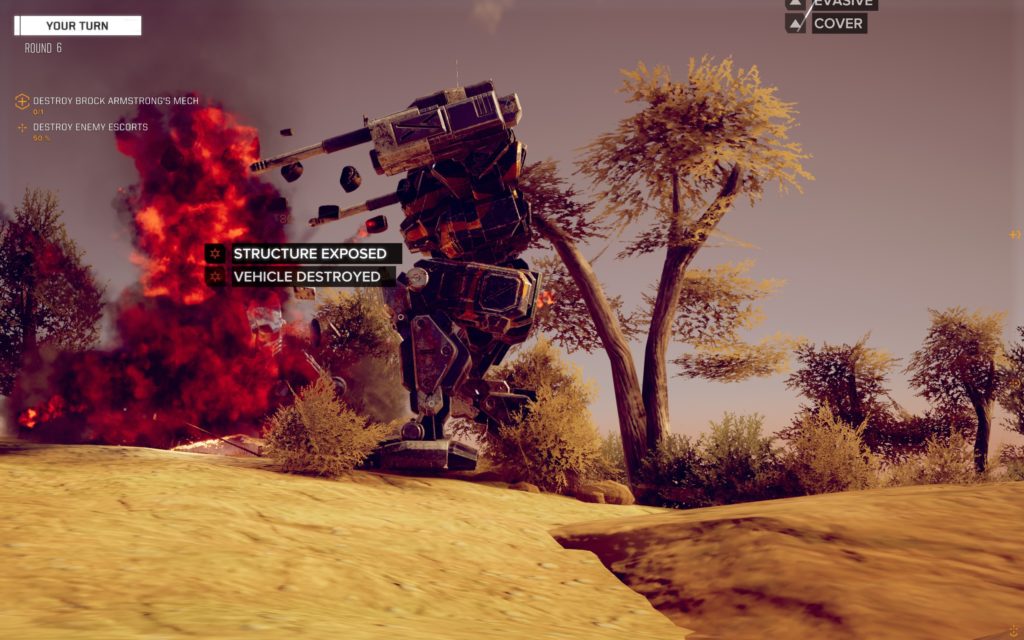
7. Battletech
Battletech is not a game that I was supposed to like. It's a tactics game about managing a team of mercenary mech pilots as they fight to restore an exiled noblewoman to power. But they also fight just to survive, often barely scraping up enough cash to repair their mechs after each battle. There are a lot of finicky details to manage, like which weapons to use on which mechs and how to spec out each of your pilots. A lot of it can be kind of inaccessible to someone who, like me, is not already familiar with the MechWarrior universe (and is averse to information-heavy games).
But Battletech earned its spot on my list because there's a lot of humanity and personality beneath the gearhead mech tuning elements. Battles are fought gradually and painfully, with opposing units slowly stripping away each others armor and limbs to hurt the pilots inside or incapacitate the mechs themselves. Sure, this game lets you feel the satisfaction of crunching enemy tanks beneath your feet, but it also lets you feel the heartbreak of losing a pilot when that one unlucky shot strikes their cockpit. The emergent narrative and drama that can unfold during these battles, and a cast of characters worthy of emotional investment, fills Battletech with harrowing stories and memorable moments.
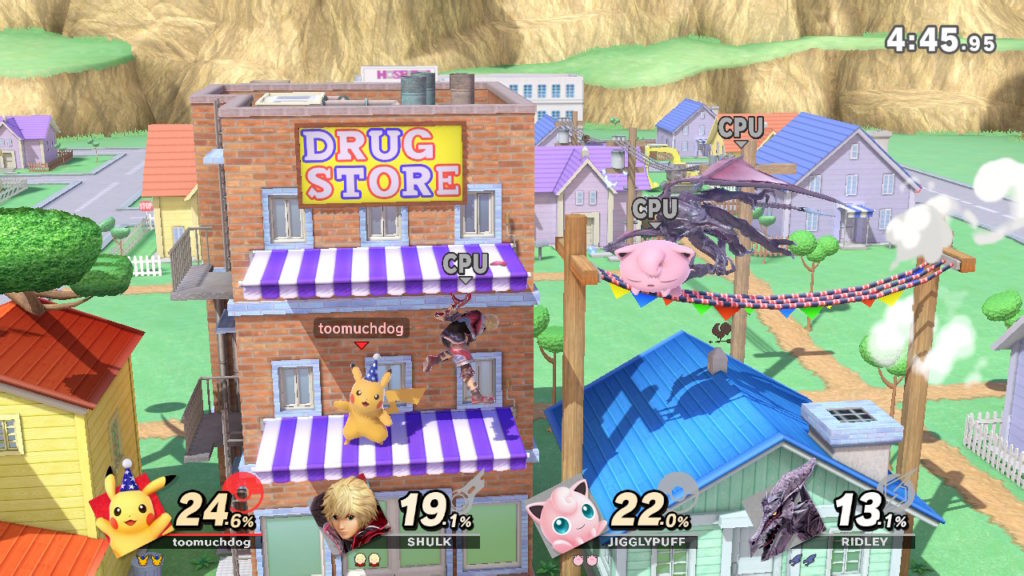
6. Super Smash Bros. Ultimate
I have a... complicated relationship to the Smash Bros. series. Growing up, I never owned a Nintendo home console. I never really had an opportunity to hone my skills in the early entries in the series. By the time Smash Bros. for Wii U came out, I was already resigned to being the one who always lost and could never keep up with my friends.
But then, at my first job out of college, I met a bunch of coworkers who loved the game and played a ton of it at lunch. It may be an extremely typical tech bro thing to do, but playing SSB4 with coworkers every day after lunch was a really wonderful experience that brought my relationship to competitive games into focus. It made me realize that I can be an insufferably poor sport (a habit I'm trying to curb), but it also made me want to play somewhat seriously and get better.
I left that job about a year ago, and have found few opportunities to play ever since. Enter Smash Bros. Ultimate, a game that promises to be a tribute to the series' entire legacy. A game that understands its two distinct audiences and loves them both. I'm not as crazy about the World of Light mode as some folks are, and I still wish it tutorialized intermediate and higher-level play (something that indie Smash-clone Rivals of Aether does excellently) but I can't help but love it. You can bet I'll be excitedly awaiting all the DLC, and excitedly challenging my friends and coworkers to battles.
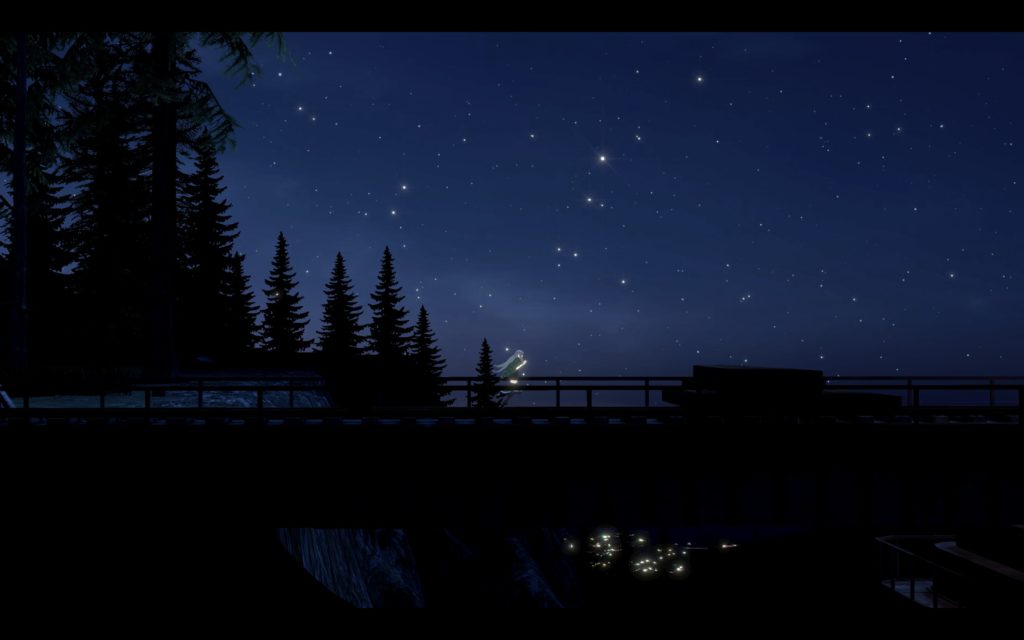
5. The Missing: J.J. MacField and the Isle of Memories
The Missing caught me completely off-guard. It's a complicated game to describe, and an even harder one to recommend compellingly, but its writing is so unexpectedly good and its story is so well-crafted that it couldn't be outside of my Top 5. It's a thematically ambitious game, exploring self-harm and LGBT+ relationships and experiences. The basic gist of it is that you play as college student J.J. MacField, looking for her friend/potential-romantic-interest Emily, who has suddenly vanished. Early in your search, J.J. is struck by lightning and realizes that she can't die, and can regenerate herself after being injured. It's a puzzle platformer in which you must crush, burn, and dismember yourself in order to solve puzzles and progress through the story.
Does that sell it for you? Not quite? Well, I get it. It's not exactly easy to explain its appeal. The game's director, Hidetaka "SWERY" Suehiro described it as a game that would rely on people recommending it to their friends. He realizes that there'll be folks who are initially put off by the game's violence or strangeness, but hopes that someone else they know will insist that they see it through. Well, one of those people is me. Seriously, if you can stomach it, give this game a shot. I can't say too much, but I promise you, it's worth it for the way it portrays its characters and the stories it tells about them.
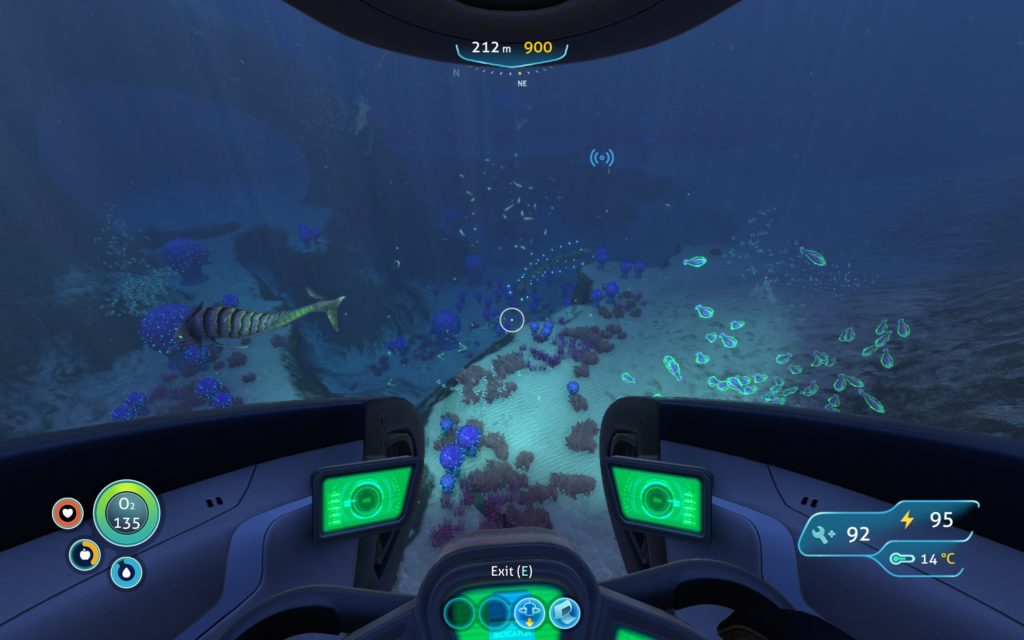
4. Subnautica
Subnautica is a survival game about exploring the depths of an alien ocean. And that, right there, is what's so amazing about it: it really feels like exploring an alien ocean. Subnautica is equal parts beautiful and terrifying, full of curious and monstrous creatures and brimming with mysterious biomes to explore. As you progress, you'll build your own undersea base, a better diving suit, and submersible vehicles to better navigate the treacherous depths.
Subnautica's most tedious survival systems, food and water requirements, can be disabled at the start of a game or via console command. And depending on who you are, this might be a good idea. At its core, Subnautica is really about discovery, exploration, and feeling very small. It ended up so high on this list because of the sheer frequency with which I gasped in awe at some new creature or cave or island materializing in the murky distance.
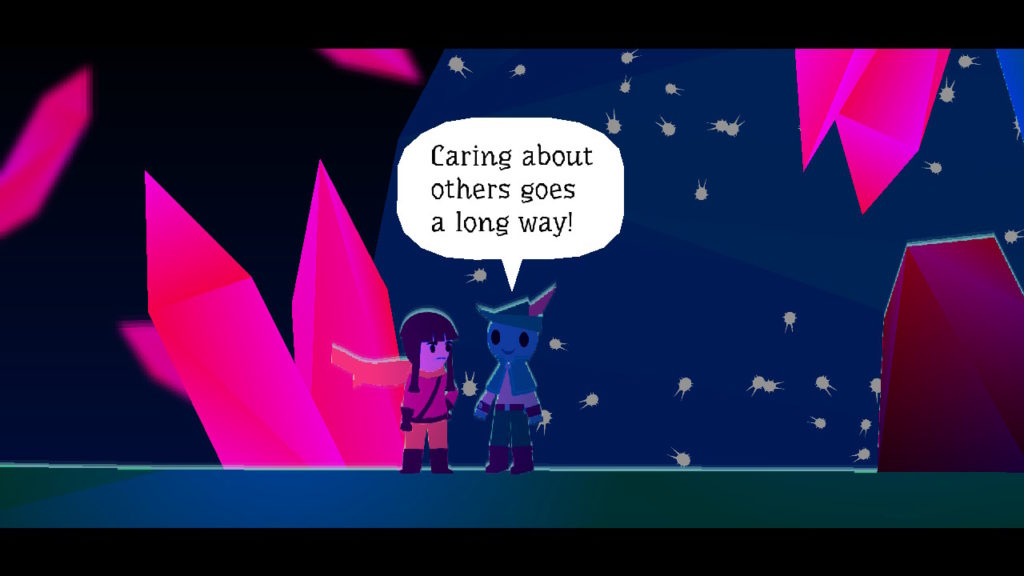
3. Wandersong
Wandersong is a truly special game. It's a game that lets you sing and dance while NPCs are talking to you, it's a game that forces you to name your character one letter at a time from a small selection of letters, and it's a game that both believes in inherent goodness in the world and also acknowledges how naive that belief can be. Wandersong's writing is charming and earnest, bolstered by a lovely papercraft-style world and plenty of fun music and light rhythm game mechanics. It's not perfect, and sometimes I wish it was willing to be more critical, but it's still aware enough to find time to address emotional vulnerability and the problems with constant positivity.
2018 has been a rough year for a lot of folks, and I'm more skeptical than ever of anything with a let's-all-just-get-along message, but Wandersong achieves a delicate balance that managed to work for me. The protagonist's unrelenting optimism is often tempered by a strong supporting cast that challenges his convictions and attitudes. We certainly can't fix everything with kindness, but we can use it to uplift the people we love, and that still means something.
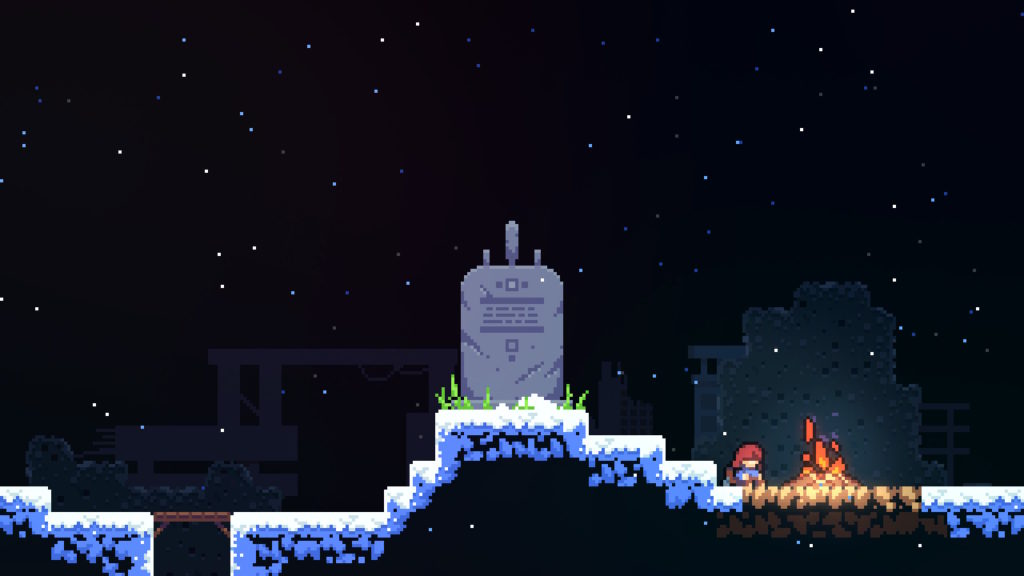
2. Celeste
I've played and loved a ton of indie games, but Celeste is one of the nearest to being perfect. I don't mean "perfect" in the sense that there is one true definition of a perfect game, but "perfect" in that it accomplishes everything it sets out to do. Celeste is a joy to play and an audio-visual delight. Its story is simple and sweet and impactful. Its difficulty is accessible at the beginning, and ramps up to nigh-unreasonable challenges in the post-game content. Its story about taking on grueling challenges for personal reasons is mirrored by its inclusion of an "Assist Mode" that allows players to tweak pieces of the game's rules to drastically reduce the difficulty.
The inclusivity that Assist Mode provides is, by itself, reason for high praise. But it only underscores a broader philosophy that Celeste embodies: challenging "masocore" platformers don't have to be just about brutal difficulty. They can be compelling, beautiful, and affirming. It's a game that takes the mechanical appeal of a genre and weaves it into its story and customization options, in order to better communicate it more fully and to bridge the gap to less skilled and less serious players. In a world where people can be defensive of difficulty in games, Celeste wants you to succeed no matter who you are. That's something incredibly special.
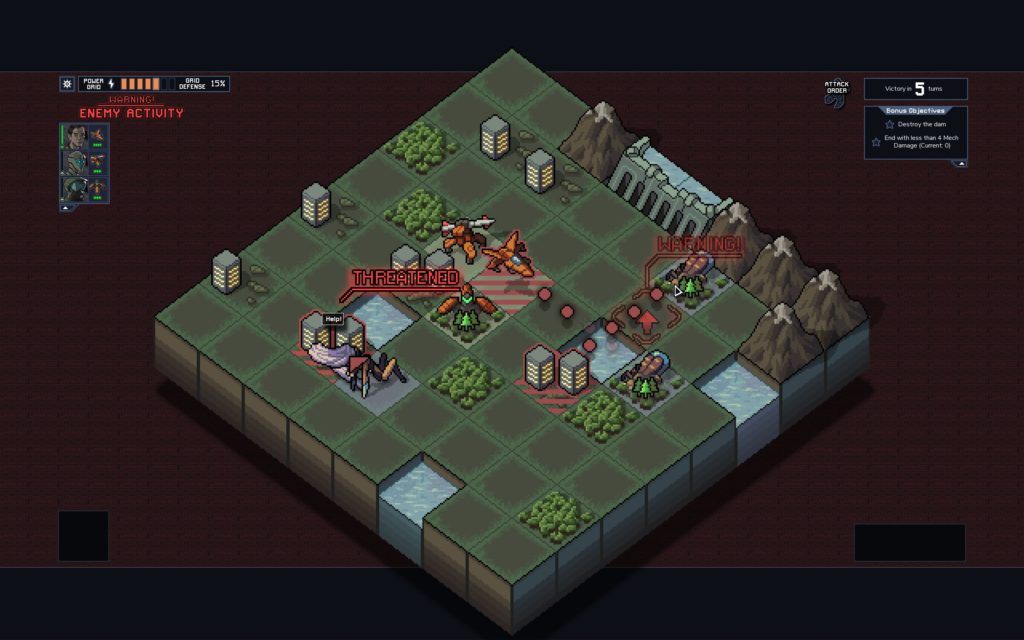
1. Into the Breach
For a couple of weeks after it came out, the only thing I wanted to do was play Into the Breach. I had dreams about this game, the sort of thing where I'd be planning imaginary turns in my head while I tried to fall asleep. While it's ostensibly a tactics game, Into the Breach uses small numbers of units and perfect information (everything that's about to happen on the next turn is deterministic, known, and visible via on-screen cues) to twist itself into something closer to a puzzle game. Each scenario is brief, straightforward, and full of interesting side objectives like destroying a dam or defending mining robots.
The way the map conveys its information is a triumph of clean UI design and well-executed visual aesthetic. Everything is laid out clearly before the player for them to puzzle over. The careful dance of mechs around the map is a wonderfully condensed strategic experience. Each mission is only five turns, and each one of those turns is its own puzzle, often with surprising and creative solutions. The way that mechs upgrade and the way pilots can carry over across timelines are also wonderful touches. But in the end, the core gameplay of Into the Breach is just so good that it could justify all sorts of external progression loops.
I've never actually beaten a run of any roguelike before Into the Breach. Dead Cells, Spelunky, FTL, and the like have all been fun experiences, but I've always fallen off or gotten distracted before clearing the game. Into the Breach sucked me in so completely that I not only managed a victorious run, but actually completed every single one of its in-game achievements. Into the Breach challenged and delighted me so consistently for the so many dozens of hours I played it; I'd be lying to myself if I didn't give it my top spot.
Note: I also wrote about Into the Breach earlier this year!